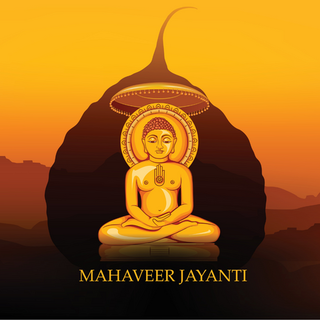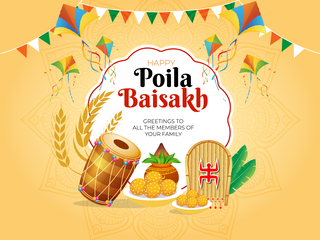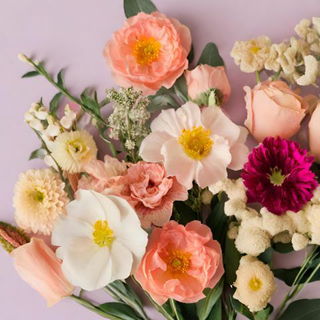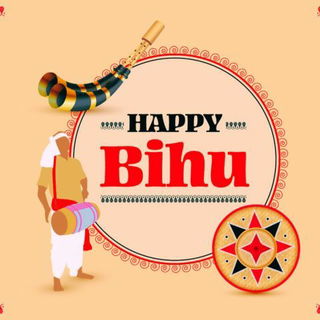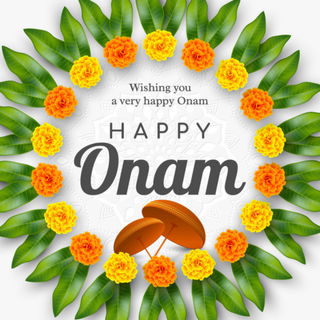- Calendar
- Calendar 2026
- January
- Holiday Makar Sankranti
Makar Sankranti
Holiday
Makar Sankranti, usually celebrated on January 14 (or on January 15 in leap years), is a bright and joyous Hindu festival celebrated across India and parts of Southeast Asia. It marks the sun's transition into Capricorn (Makara) and the beginning of its northward journey, known as Uttarayana.
The festival celebrates the conclusion of winter and the arrival of longer and warmer days, which symbolizes renewal, gratitude, and prosperity.
It is also known as Magh Bihu in Assam, Pongal in Tamil Nadu, and Uttarayan in Gujarat. Makar Sankranti is celebrated with colorful traditions honoring Surya, the sun deity, through kite flying, bonfires, music, dance, and feasts.
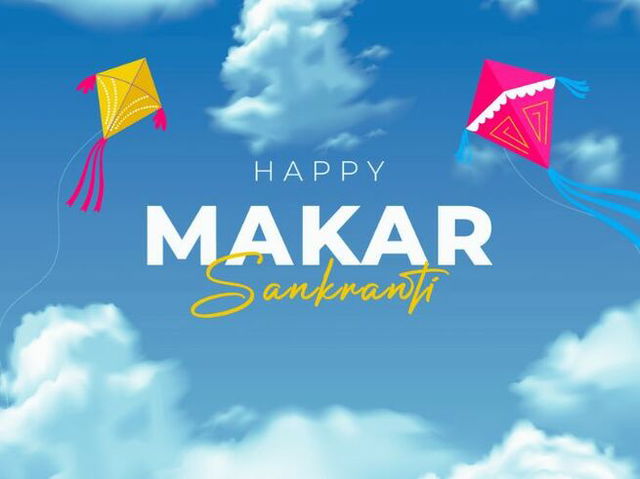
Significance of Makar Sankranti
Makar Sankranti is also dedicated to the Hindu sun god, Surya, and has its origin in ancient texts like the Gayatri Mantra from the Rigveda. It is also linked to the future coming of Kalki, the final avatar of the god Vishnu.
Makar Sankranti is a significant day for Hindus due to its spiritual nature. On this day, people take holy dips in divine water bodies like Yamuna, Ganga, Krishna, Kaveri and Godavari.
It is said that bathing in these rivers wash away your past sins and brings you blessings. People also pray to Surya, giving thanks for prosperity and success.
One of the most popular traditions during Makar Sankranti is making desserts from sesame seed and jaggery.
These goods symbolize unity, happiness, and warmth which encourages people to come together in peace irrespective of their differences.
Makar Sankranti also plays a crucial time for farmers as it marks the beginning of the harvesting of the Rabi crop season.
After the plantations, this phase allows them to take a step back and celebrate with their family and friends.
Regional Celebrations Across The Country
Punjab
This festival is called Lohri in Punjab and is observed on January 13, a day before Makar Sankranti.
People gather around bonfires, sing folk songs, and share sweets made from jaggery seeds and sweets. Lohri is special for farmers as it marks the end of winter and the start of the wheat harvest season.
Gujarat
In Gujarat, it is called Uttarayan, and it is celebrated with a grand kite festival where people of all ages celebrate by flying kites and filling the sky with the brightest colors. There are even kite flying competitions that make the celebration more fun. Special treats like tilgul (sesame-jaggery sweets) and chikki (nut brittle) are enjoyed during this time.
Maharashtra
In Maharashtra, people celebrate by sharing tilgul laddus (sesame and jaggery sweets) with the greeting, “Tilgul ghya, goad goad bola,” which means, “Take this sweet and speak kindly.” These sweets symbolize unity and warmth, and the sesame seeds are thought to have health benefits during winter.
Tamil Nadu
In Tamil Nadu, Makar Sankranti coincides with Pongal, a four-day harvest festival. The highlight of Pongal is cooking a dish called “Pongal” made from newly harvested rice, jaggery, milk, and ghee. The festival honors the sun god, Surya, and the cattle, who are vital for farming.
Assam
In Assam, the festival is known as Magh Bihu or Bhogali Bihu, marking the end of the harvest season. On the night before, called Uruka, families gather to cook a large feast and light bonfires. The next day is filled with traditional games, dances, and feasts celebrating Assamese culture.
West Bengal
In West Bengal, Makar Sankranti is called Poush Sankranti, celebrated in the Bengali month of Poush. Many people attend the Ganga Sagar Mela, a sacred fair held where the Ganga River meets the Bay of Bengal. Special sweets like pithe (rice cakes stuffed with coconut and jaggery) are made for the festival.
Across India, Makar Sankranti brings people together in joyful celebrations, each with its unique flavor, showing the rich cultural diversity of the country.
Rituals Of Makar Sankranti
Makar Sankranti is celebrated with rituals that honors the transition of the sun and embrace the arrival of new beginnings. Some of the most significant traditions are as follows:
Holy Bathing
One of the most important rituals is taking a bath in Ganga, Yamuna, and Saraswati rivers in Prayarag. Devotees across the globe flock to holy sites like Varanasi, Haridwar, and Allahabad.
Bathing in these rivers on Makar Sankranti is believed to cleanse the soul and absolve one’s sins, bringing spiritual blessings and renewal.
Donation and Charity
Makar Sankranti is the perfect day for charity and that is why people often donate essentials like blankets, clothes, grains, and money to the less privileged. This act of giving is said to bring in prosperity.
Makar Sankranti And Food
Another specialty about Makar Sankranti is the regional food with sesame and jaggery as the basic ingredient. Some of them are:
- Tilgul: This Maharashtra specialty is healthy and encourages people to only say sweet things as it marks the beginning of their new year.
- Pongal: The Tamil rice dish Pongal is made by boiling milk with rice, jaggery and ghee.
- Chikki (Brittle): In Gujarat, chikki, a brittle made with peanuts or sesame seeds and jaggery, is popular during Uttarayan.
- Pithe (Rice Cakes): In West Bengal, pithe is a delicacy prepared with rice flour, coconut, and jaggery. Variations like patishapta and puli pithe add to the sweetness of the celebrations.
The Symbolism of the Kite Festival
Flying kites is a very famous and significant part of Makar Sankranti, especially in Rajasthan and Gujarat. The act of flying kites symbolizes the ascent of souls towards greater heights.
People of all ages participate in kite-flying, making it a joyful and visually stunning part of the festivities.
In Gujarat, kite-flying competitions bring people together in a friendly yet competitive spirit, while in other regions, families gather on rooftops, exchanging greetings and sweets. The sky, adorned with colorful kites, reflects the celebratory mood of the occasion and emphasizes unity.
Recommended Article
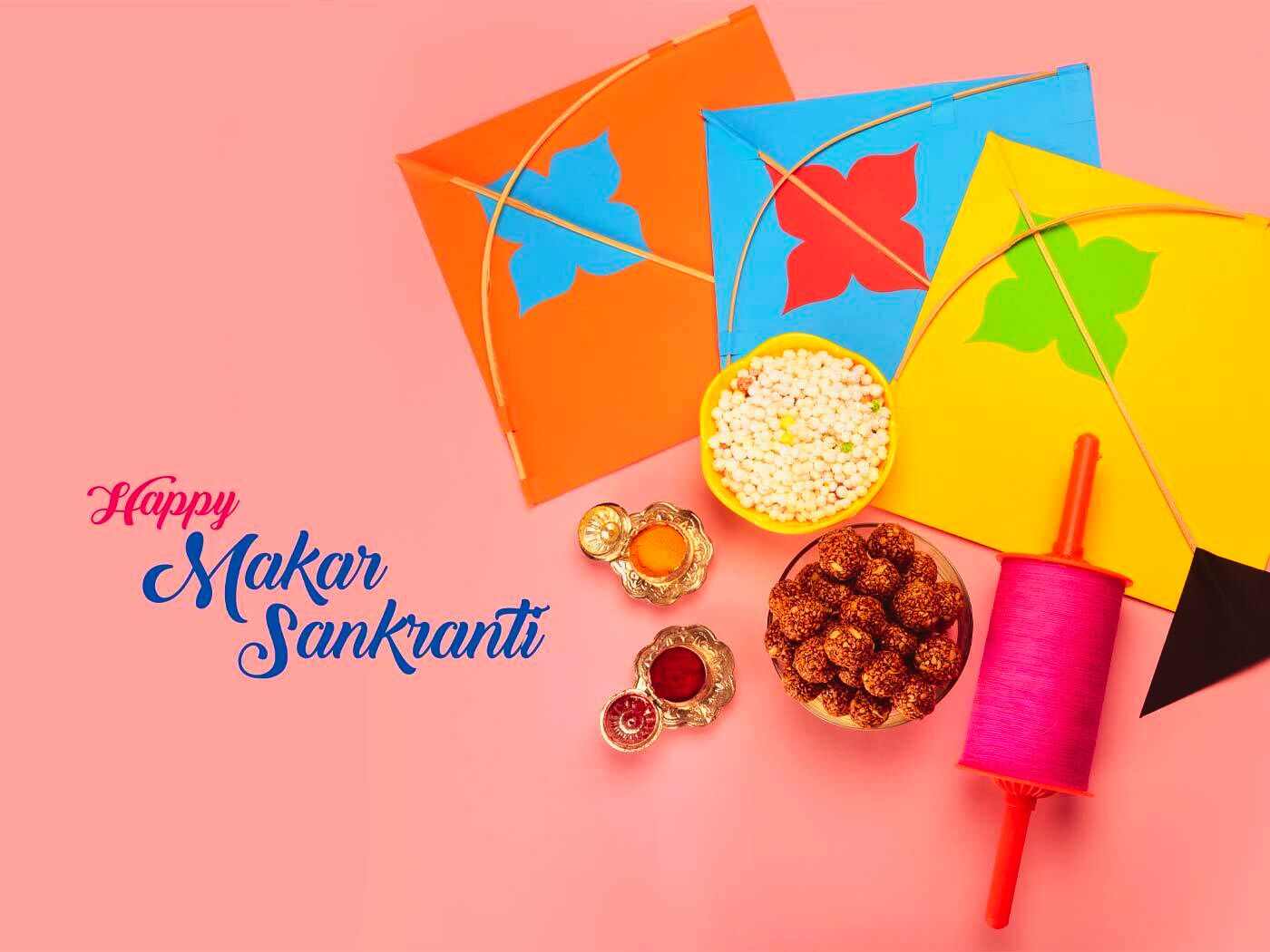
Other Celebrations
-
Jan 13 Mon
-
Jan 15 Wed
-
Apr 02 Thu

Makar Sankranti - Next years
Thursday, 14 January 2027
Saturday, 15 January 2028
Sunday, 14 January 2029
